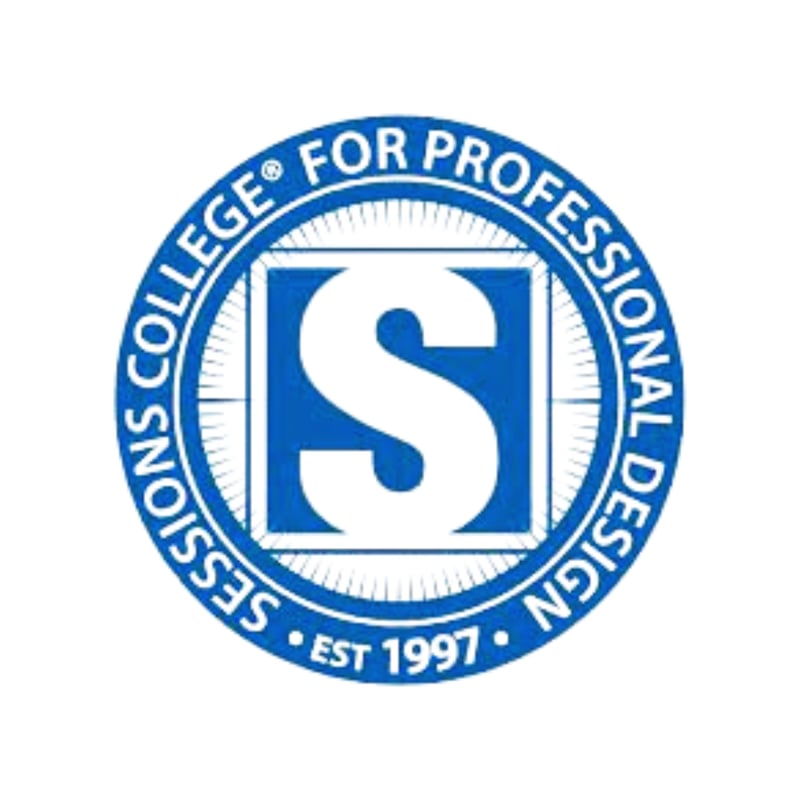How to Become a Digital Marketer in Missouri

Want personalized recommendations?
Let's match you to the right program

Digital marketing has become an integral part of today's business landscape. As more and more businesses shift their focus to the online world, the demand for skilled digital marketers continues to rise. If you're interested in pursuing a career in this field in Missouri, here's what you need to know:
Article continues after recommendations
Recommended for you
What is Digital Marketing?
Digital marketing involves promoting products, services, or brands through various online channels. Digital marketers utilize strategies such as search engine optimization (SEO), content marketing, social media marketing, email marketing, and paid advertising to reach target audiences and drive online traffic. Their responsibilities include creating and implementing marketing campaigns, analyzing data, managing online marketing channels, and optimizing website performance.
Where does a Digital Marketer work?
Digital marketers can work in a variety of settings, including:
- Marketing agencies: Many digital marketers work for specialized marketing agencies that offer services to clients across industries.
- In-house marketing teams: Some companies have their own in-house marketing teams, where digital marketers work alongside other marketing professionals.
- Freelancing: Freelancing is a popular option for digital marketers, allowing them to work with multiple clients on a project basis.
How to Become a Marketer in Missouri?
To become a Marketer in Missouri, one must first obtain a relevant education, such as a bachelor's degree in Marketing, Advertising, or a related field. Next, they should pursue professional certifications, such as the Certified Marketing Specialist (CMS) or the Digital Marketing Certification (DMC), to demonstrate their expertise. Finally, they can start searching for job opportunities in Missouri.
What are the requirements to become a Digital Marketer in Missouri?
To become a digital marketer in Missouri, you'll need a combination of education and skills. While there are no specific legal requirements, the following qualifications are typically sought after:
- Education: A bachelor's degree in marketing, communication, business, or a related field is often preferred by employers. However, some companies may consider candidates with relevant experience or certifications.
- Skills: Digital marketers should have strong analytical, communication, and creative skills. They should be familiar with various digital marketing tools and platforms and stay updated with industry trends.
Where can I find Digital Marketing classes in Missouri?
If you're looking to enhance your knowledge and skills in digital marketing, Dreambound is a great platform to explore. Dreambound is the largest platform for students to find and compare vocational training programs. They offer digital marketing training in Kansas City and St. Louis, Missouri. You can find more information and enroll in their courses through the following links:
- Digital Marketing Training in Kansas City, MO Dreambound provides comprehensive training programs that cover various aspects of digital marketing, equipping you with the skills and knowledge needed to thrive in this field.
Remember, becoming a digital marketer in Missouri requires continuous learning and staying updated with the latest industry trends. With the right education and training, you can embark on a successful career in this exciting and rapidly evolving field.
Exploring a Career in Digital Marketer Outside Missouri
If you've been inspired to follow the path of a Marketer but geography isn't on your side, worry not. Your aspiration to become a Marketer is within reach in Arizona, Illinois, New Jersey, Oregon, Wyoming. For those who don't find these options feasible, Dreambound enables you to effortlessly find and evaluate Marketing classes by simply search by zip code. Armed with determination and Dreambound, anyone, anywhere, can achieve a career in business and office.
How long does it take to become a Digital Marketer?
The time it takes to become a certified digital marketer varies based on the type of certification you pursue and your prior experience. Generally, you'll spend 1-2 weeks researching and planning your path, followed by 3-6 months of certification training in areas like SEO, social media, and analytics. After completing the coursework, it may take an additional 1-2 months to prepare for and pass the certification exam. Gaining practical experience through projects or internships, which can take 6-12 months, is crucial for applying your skills and building a portfolio. Ongoing learning is also essential to stay current in this ever-evolving field.
Get courses selected just for you
Try our powerful search engine
Article continues after recommendations
More recommendations for you
How do I get my Digital Marketing certification?
If you're looking to break into the field of digital marketing, getting certified is a great way to gain credibility and showcase your skills to potential employers. There are several different certification programs available, each with their own requirements and benefits. Here are the steps you can take to get your digital marketing certification:
-
Research different certification programs: Start by researching different certification programs to find one that aligns with your career goals and interests. Some popular programs include Google Ads, Google Analytics, HubSpot, Facebook Blueprint, and Hootsuite. Each program offers a different focus and set of skills, so choose one that will be most relevant to your desired career path.
-
Choose a certification program: Once you've done your research, choose a certification program that you're interested in pursuing. Consider the cost, time commitment, and the specific skills and knowledge that the program will provide. Look for programs that are recognized and respected in the industry, as this will add more value to your certification.
-
Enroll in the certification program: Once you've chosen a program, enroll in the certification course. Most programs offer online courses that you can complete at your own pace, making it convenient for working professionals or those with busy schedules. Some programs also offer in-person training or workshops if you prefer a more hands-on approach.
-
Study and prepare for the exam: Once you've enrolled in the certification program, it's time to start studying and preparing for the exam. Take advantage of any study materials or resources provided by the program, such as practice exams, study guides, or online tutorials. Set aside dedicated time each day or week to study and review the material, and don't be afraid to ask questions or seek clarification if you're struggling with certain concepts.
-
Take the certification exam: After you feel confident in your knowledge and skills, it's time to take the certification exam. Most programs offer online exams that you can take from the comfort of your own home or office. The exams typically consist of multiple-choice questions or practical exercises that test your understanding of the material. Make sure to review the exam guidelines and requirements beforehand to ensure a smooth testing experience.
-
Receive your certification: Once you've successfully passed the exam, you will receive your digital marketing certification. This certification can be added to your resume, LinkedIn profile, or personal website to showcase your expertise to potential employers. Some programs also provide badges or certificates that you can display on your website or social media profiles.
Getting certified in digital marketing is a great way to stand out in a competitive job market and demonstrate your commitment to professional development. It shows employers that you have the skills and knowledge necessary to succeed in the field and can give you an edge over other candidates. Plus, many certification programs offer additional benefits such as access to exclusive resources, networking opportunities, and ongoing support and training.
How do I get a job as a Digital Marketer?
Once you've obtained your digital marketing certification, you're ready to start your job search. Here are some steps you can take to land a job as a digital marketer:
-
Polish your resume and online presence: Before you start applying for jobs, make sure your resume is up to date and highlights your digital marketing skills and certifications. Include any relevant experience, internships, or projects that showcase your abilities. Additionally, optimize your LinkedIn profile and personal website to showcase your skills and portfolio.
-
Network with professionals in the industry: Networking is a crucial aspect of finding a job in any field, including digital marketing. Attend industry events, join professional organizations, and connect with other professionals in the field through LinkedIn or other social media platforms. Building relationships with industry insiders can lead to job opportunities and valuable insights into the industry.
-
Gain practical experience through internships or freelance work: If you're just starting out in the field, gaining practical experience through internships or freelance work can be a great way to build your portfolio and gain hands-on experience. Look for internships or freelance opportunities that align with your interests and career goals, and be proactive in seeking out opportunities.
-
Apply for entry-level positions: When you're ready to start applying for jobs, focus on entry-level positions that will allow you to gain experience and grow your skills. Look for job postings on online job boards, company websites, and industry-specific job sites. Tailor your resume and cover letter to each position you apply for, highlighting your relevant skills and certifications.
-
Prepare for interviews: Once you start getting interview requests, it's important to prepare and practice for each interview. Research the company and the role you're applying for, and be prepared to answer common interview questions related to digital marketing. Additionally, be ready to showcase your portfolio, discuss your certifications, and provide examples of your past work.
-
Continue learning and stay up to date: Digital marketing is a constantly evolving field, so it's important to continue learning and stay up to date with the latest trends and technologies. Attend webinars, workshops, or conferences, and participate in online communities or forums to stay connected with other professionals in the industry. Continuing education and professional development will not only help you excel in your current role but also make you a more attractive candidate for future opportunities.
Remember, landing a job in digital marketing may take time and persistence. Don't get discouraged if you don't receive immediate job offers. Keep refining your skills, expanding your network, and applying for relevant positions. With dedication and a proactive approach, you'll increase your chances of finding a job as a digital marketer.
Career Paths and Opportunities after Becoming a Digital Marketer
Once you've become a certified digital marketer and gained some experience in the field, there are several career paths and opportunities you can explore. Here are some common career paths for digital marketers:
-
Digital Marketing Specialist/Coordinator: This role typically involves managing and executing digital marketing campaigns, such as social media advertising, email marketing, and content creation. Digital marketing specialists often work closely with other team members, such as graphic designers and copywriters, to develop and implement marketing strategies.
-
SEO Specialist: An SEO specialist focuses on optimizing websites and content to improve search engine rankings. They conduct keyword research, optimize on-page elements, and develop link-building strategies to increase organic traffic to a website. SEO specialists often work closely with content creators and web developers to implement SEO best practices.
-
PPC Specialist: A PPC (pay-per-click) specialist manages paid advertising campaigns, such as Google Ads or Facebook Ads. They create and optimize ads, monitor campaign performance, and analyze data to make informed decisions and improve ROI. PPC specialists often work closely with digital marketing managers and web analysts to develop effective advertising strategies.
-
Social Media Manager: A social media manager is responsible for managing and growing a company's social media presence. They create and schedule social media content, engage with followers, and monitor social media analytics to measure the effectiveness of campaigns. Social media managers often work closely with content creators and graphic designers to develop engaging and shareable content.
-
Content Marketing Manager: A content marketing manager oversees the creation and distribution of valuable and relevant content to attract and engage a target audience. They develop content strategies, manage a team of content creators, and analyze data to measure the success of content marketing efforts. Content marketing managers often work closely with SEO specialists and social media managers to optimize content for search engines and social media platforms.
-
Digital Marketing Manager: A digital marketing manager is responsible for developing and implementing a company's overall digital marketing strategy. They manage a team of digital marketers, monitor campaign performance, and analyze data to make data-driven decisions. Digital marketing managers often work closely with other departments, such as sales or product development, to align marketing efforts with business goals.
These are just a few examples of the many career paths available in digital marketing. The field is constantly evolving, and new roles and opportunities are emerging all the time. Whether you choose to specialize in a specific area or pursue a broader role, there are plenty of opportunities to grow and advance in your digital marketing career.
How Much does a Digital Marketer Make?
The average salary for a digital marketer can vary depending on factors such as location, experience, industry, and company size. According to the BLS as of May 2022, the average median annual wage for a digital marketer, categorized under Market Research Analysts and Marketing Specialists, was $68,230. The lowest 10 percent earned $38,280, while the highest earned $131,850.
Final Thoughts
In conclusion, getting certified in digital marketing is a great way to gain credibility and showcase your skills to potential employers. By following the steps outlined in this article, you can obtain your digital marketing certification and increase your chances of landing a job in the field.
Once you've become a certified digital marketer, there are various career paths and opportunities you can explore. Whether you choose to specialize in a specific area or pursue a broader role, there are plenty of opportunities to grow and advance in your digital marketing career.
Remember to continue learning and staying up to date with the latest trends and technologies in digital marketing. The field is constantly evolving, and by staying ahead of the curve, you'll position yourself as a valuable asset to any organization.
So, start your journey towards a successful career in digital marketing today!
Dreambound offers a window into various career paths, so if you're considering a shift in your career, browse through these articles:

Jessa Guzon is a member of the School Growth and Customer Success Team in Dreambound. She finds joy in assisting both schools and students in reaching their goals by answering their queries and connecting them with the right people. Outside her professional role, Jessa is a happy-go-lucky person with a thirst for adventure.




